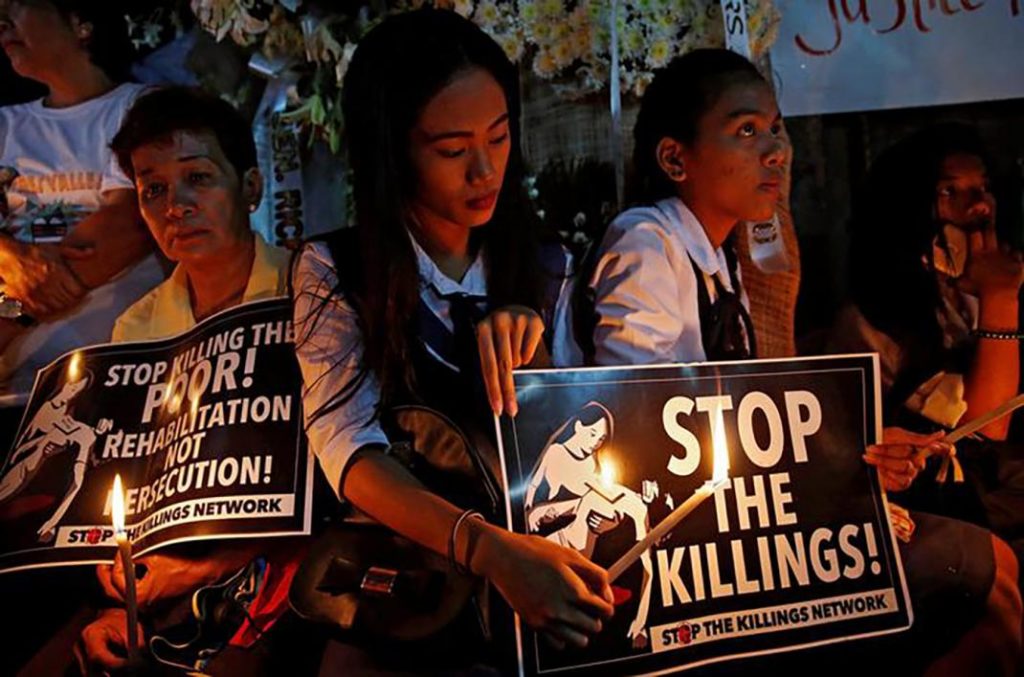
HUMAN rights abuses in the Philippines have reportedly worsened due to President Rodrigo Duterte’s war against illegal drugs, killing tens of thousands of Filipinos in the process, a new report from the United Nations Human Rights Office found.
“A heavy-handed focus on countering national security threats and illegal drugs has resulted in serious human rights violations in the Philippines, including killings and arbitrary detentions, as well as the vilification of dissent,” read the report released on Thursday, June 4.
The report, which was requested by the UN Human Rights Council last year, is based on nearly 900 submissions as well as court and police records, interviews with victims and witnesses, and government input.
“Despite credible allegations of widespread and systematic extrajudicial killings in the context of the campaign against illegal drugs, there has been near impunity for such violations,” it added.
Since the start of Duterte’s presidency in mid-2016, he has focused on fulfilling his campaign promise to eradicate the trade and use of illicit drugs. Though there was no direct command, the president’s language may have been interpreted as “permission to kill,” the report said.
While the government figures indicate that at least 8,663 people have reportedly been killed because of the drug war, there are some estimates that put the toll at triple that number, the UN said.
“Unfortunately, the report has documented deep-seated impunity for serious human rights violations, and victims have been deprived of justice for the killings of their loved ones,” UN High Commissioner for Human Rights Michelle Bachelet noted.
She added, “People who use or sell drugs do not lose their human rights.”
The report also showed that the police conducted raids against drug suspects without warrants, systematically forced suspects to make self-incriminating statements, and falsified evidence.
“Such ill-defined and ominous language, coupled with repeated verbal encouragement by the highest level of state officials to use lethal force, may have emboldened police to treat the circular as permission to kill,” the report said.
The extrajudicial killings have not ceased in recent months, despite the COVID-19 pandemic.
“The violations that we document in the report are very much ongoing,” Ravina Shamdasani, co-author of the report, said. “The killing and the campaign against illegal drugs are not over, even in the context of the COVID pandemic.”
Human rights group Amnesty International has called for an investigation into the Philippines’ human rights abuses.
“This long-awaited report is a damning indictment of the Philippines’ ‘war on drugs.’ “This failed ‘war’ has seen thousands murdered by the police as part of a widespread and systematic attack against poor communities in the name of combating drugs,” said Nicholas Bequelin, Amnesty International’s Asia-Pacific Regional Director.
“Like the UN, we are deeply concerned by the total impunity enjoyed by those who have perpetrated these crimes, which has allowed for the proliferation of further serious human rights violations in the country. The report makes clear the critical need for further investigation into these violations. The UN Human Rights Council must now launch an independent international investigative mechanism on extrajudicial executions and other violations committed since 2016,” she added.
In response, Malacañang said that the country has a “working, independent and functioning” justice system.
“The Duterte administration takes each case, be it a violation of the freedom of the press or of any other human rights, brought before its attention seriously and resolves each one within our domestic processes,” said Presidential Spokesperson Harry Roque.
He slammed the rehashed claims of impunity as “unfounded.”
“Law enforcers operate on strict protocols and transgressors of the law are made accountable,” Roque stressed.








Thanks for writing, but can you please link your article to the actual UN Human Rights Council June 4 report? That would be nice. Thanks!